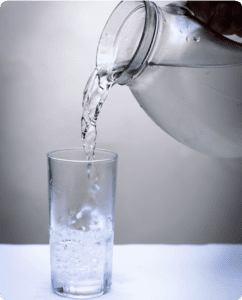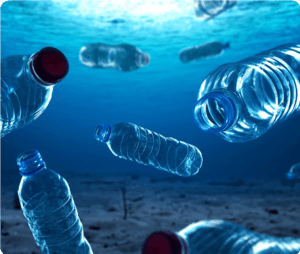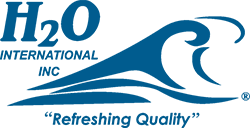How much Water should we drink?
The general recommendation is to drink at least 8 cups (64 ounces) of water per day, but individual water needs can vary based on factors like age, activity level, and climate. It’s important to listen to your body and stay hydrated, adjusting your water intake as needed.

What Health issues can Dehydration cause?
Dehydration can lead to various health issues, including :
- Thirst
- Dry mouth and dry skin
- Fatigue and weakness
- Dark yellow urine
- Dizziness or lightheadedness
- Rapid heartbeat and rapid breathing
- Headaches
- Dry mouth and swollen tongue
- Constipation
- Sunken eyes
- Confusion or irritability
- Fainting

Can Dehydrations cause Migraines?
Yes, dehydration can be a trigger for migraines in some individuals. Dehydration can lead to changes in blood volume and electrolyte balance, which may affect blood flow to the brain and potentially trigger a migraine headache. It’s one of many potential triggers, and not everyone who is dehydrated will necessarily experience a migraine. Staying well-hydrated is a good practice to help reduce the risk of migraine attacks in susceptible individuals.
Is it better to Drink Water with High Mineral Content for Hydration?
Drinking water with a moderate mineral content is generally safe and can be beneficial for overall health. Minerals like calcium and magnesium can contribute to your daily dietary intake. However, excessively high mineral content, particularly in “hard” water, might not be suitable for everyone, as it can have a slightly unpleasant taste and may contribute to the buildup of mineral deposits in appliances and plumbing.
The mineral content in drinking water can vary depending on its source. Most tap water is safe and adequately balanced in terms of minerals. If you have specific concerns about your water quality, you can consider using a water filter to ensure it meets your preferences. Always consult with your healthcare provider or a water quality expert if you have questions or health-related concerns about the mineral content in your drinking water.

Filtered Water
- Cost-effective : Filtering your tap water at home is usually more economical than buying bottled water.
- Environmentally friendly : Reduces plastic waste and energy used in the production and transportation of bottled water.
- Customizable : Different types of filters are available (e.g., activated carbon, reverse osmosis) to suit your specific water quality needs.
May retain minerals: Some filtration methods can retain beneficial minerals in the water.
Bottled Water
- Convenience : Easily accessible and portable, making it convenient for on-the- go hydration.
- Consistency : Bottled water quality is typically regulated and consistent, ensuring a certain standard of purity.
- Varieties : Available in various types (spring water, purified water, mineral water) and flavors.

However, there are some downsides to bottled water :
- Cost : Bottled water can be more expensive in the long run compared to tap water.
- Environmental impact : Producing, transporting, and disposing of plastic bottles contributes to environmental issues like pollution and waste.
- Quality concerns : Some bottled waters may not be any purer than tap water, and the source and treatment methods can vary.
In general, filtered tap water is a more cost-effective and environmentally friendly option, especially if you invest in a quality home filtration system. However, there may be situations where bottled water is more convenient, such as when traveling or in areas with unreliable tap water sources.

At H2O International, we provide a diverse range of water filtration products tailored to meet the needs of you and your family. Rest assured, dehydration will not be a concern with our clean, safe, and delicious drinking water, encouraging you to to look forward to a refreshing glass of water every day.
Click here to see our selection.


